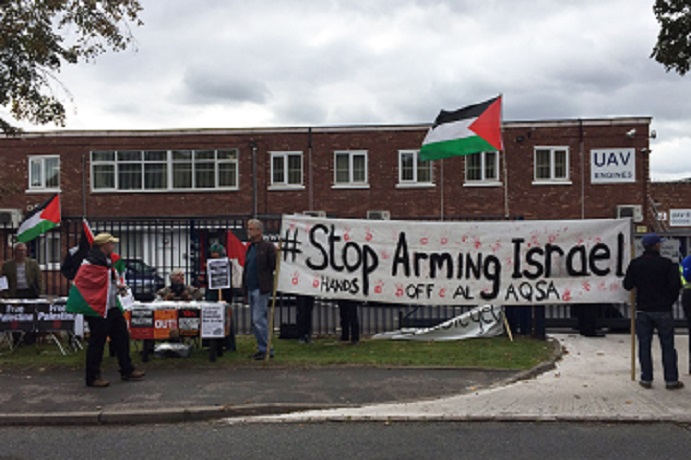Ramona Wadi
Middle East Monitor / May 7, 2020
In 2018, the Israeli defence company Elbit won a €59 million ($63.7 million) contract to provide drone surveillance systems in the Mediterranean for the EU. “Having been selected by the European Union authorities is yet another vote of confidence in the Hermes 900 by following additional contract awards for this UAS in Europe, Asia Pacific, Latin America and Israel,” Elbit’s General Manager Elad Arahonson declared.
The contract can be renewed for an additional two years. On Tuesday, the Euro-Mediterranean Human Rights Monitor called upon the EU to cancel the contract for two main reasons. Drone surveillance provides the opportunity for transgressions of international law as it removes the obligation incumbent upon vessels to provide assistance. To cleanse the Mediterranean of refugees and violate international law, the EU has chosen Israeli technology which has already been tested on the Palestinian civilian population.
Former UN Special Rapporteur, and Chairman of Euro-Med Monitor’s board of trustees, Richard Falk stated: “It is outrageous for the EU to buy drones from Israel drone manufacturers considering the repressive and unlawful ways that drones have been used to oppress Palestinians living under occupation.”
Israel has firmly established itself as an admired violator of international law, as indicated by Arahonson’s statement which shows the global reach of the colonial entity’s military and surveillance technology. The EU, in particular, continues to exceed the parameters of its own hypocrisy when it comes to upholding the purported peacebuilding politics.
The body’s collaboration with Israel is outrageous in terms of human rights violations, yet this is also an extension of how the international community has normalised Israel’s colonial violence against the Palestinian people.
On its website, the European External Action Service states: “The European Union’s commitment to peace is not rhetorical.” Perhaps the statement would have benefited from an admission of rhetorical façade. For Israel, the inaccuracies do not matter as they work in favour of the colonial project. Palestinians, on the other hand, are trapped into a political dynamic where the Palestinian Authority continues to laud the EU as its political partner. The EU, meanwhile, is able to manipulate political outcomes for Palestinians while strengthening its ties with Israel, helping it export its surveillance technology to be used against those who the EU deems undesirable.
Peacebuilding, as the EU describes its diplomacy, is all about silencing the oppressed, using the ideology and technology of the coloniser. The reciprocal agreement between Israel and the EU to aid each other in oppressing populations should be stopped, but the EU has abdicated its moral and political responsibility. The PA, dependent as it is upon EU aid to finance its existence, will not voice any opposition to Israeli drones being used for European surveillance measures. Once again, the Palestinian political struggle is hindered by the perpetual inequality that forms the foundations of peacebuilding.
However, this collaboration at a regional level should serve as an incentive to expose the EU’s role in hindering, rather than supporting Palestinians and their rights. The PA may well continue to call the EU an important partner in the illusion of state-building, but the Palestinian people have experienced the ramifications of EU involvement first-hand. Not only does the EU benefit from weapons tested upon the Palestinian people, it also aids Israel in ensuring Palestine is consistently depleted to prevent even the hypothesis of a Palestinian state. There is no foundation upon which the EU can claim peace-building other than its own fictitious narratives. When Israel next targets Palestinians with its precision weapons, the EU would do well to acknowledge its role when it issues the usual perfunctory statements.
Ramona Wadi is an independent researcher, freelance journalist, book reviewer and blogger. Her writing covers a range of themes in relation to Palestine, Chile and Latin America













